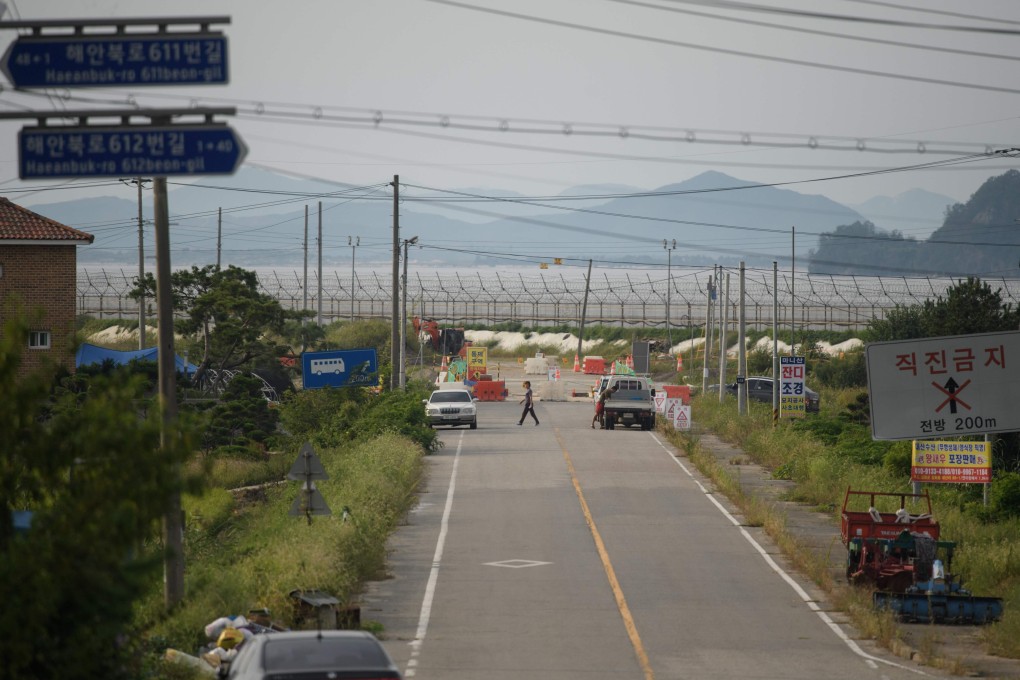Tempers flare as South Korean villagers stop activists from sending rice, face masks to North
- Riot police tried to stop pushing and shoving as activists, mostly North Korean defectors, tried to release bottles into the sea on Ganghwa island
- This came as Pyongyang criticised Seoul for failing to stop leaflets being sent over the border, and failed to answer a regularly scheduled phone call

A group of seven activists, mostly North Korean defectors, got into shouting and shoving matches with villagers at Samsanmyeon on the northwestern island of Ganghwa near the inter-Korean border. Some 40 riot police officers rushed to the scene to keep the activists from the residents, who had blocked the only access to the shore.
The activists had arrived in two cars loaded with more than 100 plastic bottles containing a kilogram of rice and a face mask each, but did not include any anti-North Korea leaflets.
Kim Yun-tae, head of Maieum 1-ri (village), said most of these plastic bottles failed to reach the North and washed up on the South’s shore, polluting fish farms and leaving piles of waste on the beach.
“I understand very well the activists’ philanthropic intentions and we have no problems with aiding North Koreans, but this is not a right method to do so,” Kim said.
